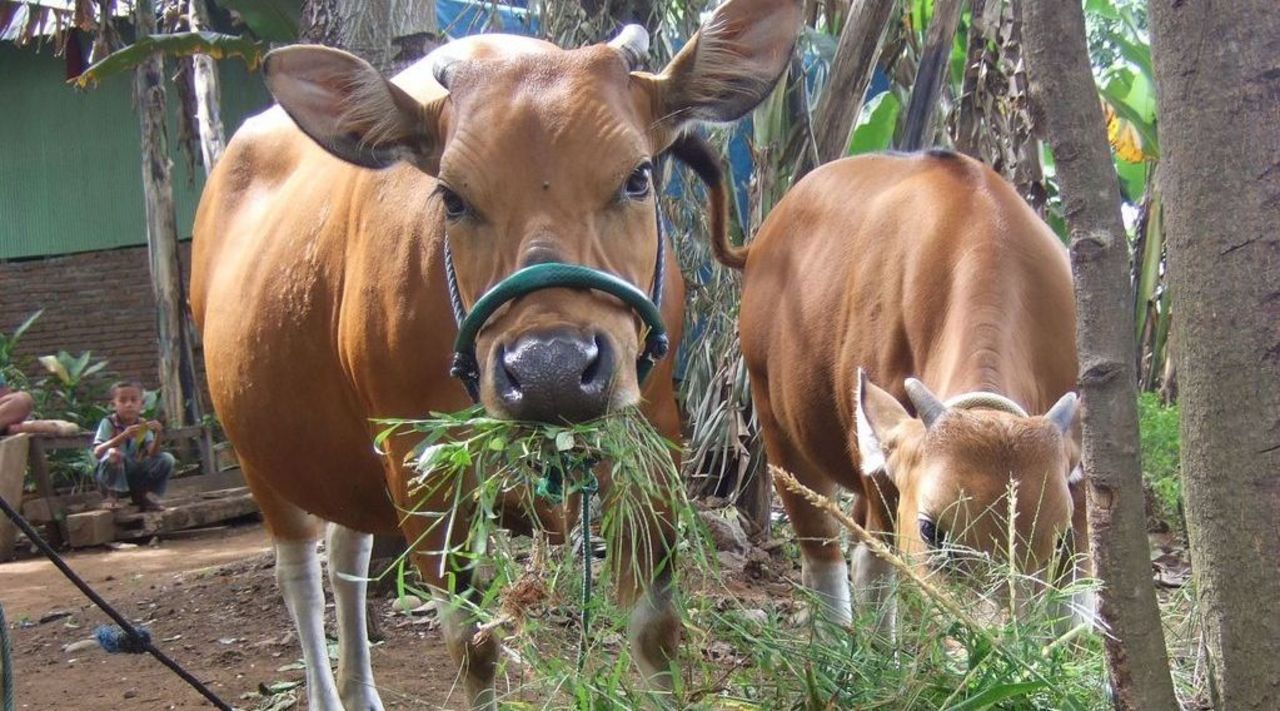Project
All cattle for Jakarta?

Benchmarking the beef supply chain in eastern Indonesia
The Indonesian beef supply chain is very dynamic and characterised by huge structural differences in production, live cattle trade, processing and retail.
Background and Objective
A large number of small cattle producers are facing a growing quantity of imported beef and cattle finished in Indonesian feedlots based on Australian live cattle imports. The policy continues to aim at self-sufficiency of beef production. At the same time, the retail is consolidating towards super markets and the consumer preferences and eating habits for beef are changing. The project has the following objectives:
1. To draw comprehensive picture about the stakeholders, product, finance and information flow as well as the competitiveness in the eastern Indonesian supply chain and their main domestic and foreign competitors.
2. To analyse the incentives, driving forces and decision making of main actors in the beef supply chain.
3. To improve farmers’ and agribusiness’ access to knowledge about the beef supply chain in eastern Indonesia.
4. To develop strategies for making the Indonesian supply chain more effective and competitive and provide farmers with higher incomes.
5. Develop appropriate strategies to reduce weight loss during inter-island transportation.
Approach
The project examines the international and domestic political, economic and social framework conditions as well as product and information flows through the supply chain. Further, an economic analysis is performed for all levels of the supply chain. Based on the findings the five partner institutions commonly develop approaches for the sustainable integration of smallholders in the Indonesian beef supply chain.
Data and Methods
The data base for the farm-level analysis is provided through typical farm data which were set up within the framework of the agri benchmark Beef and Sheep Network. The data and information from farm gate to consumer were collected with interviews and expert opinion. For each level of the chain it was made sure that at least 75 % of the product volumes were reflected.
Results
The results show that the beef sector is characterised by strong demand for beef, driving prices up and in some areas stripping the productive basis where herd and productivity growth can not keep pace with demand. Present policy is rather cattle-supply oriented than targeting the drivers like cash requirements of farmers or improving efficiency throughout the supply chain. Small farms around five cattle dominate, farm level productivity is below potential and low when compared internationally. Beef prices, sometimes costs and in most cases profitability are high throughout the supply chain, beef production and trade is presently considered good business by the majority of the actors. Supply shortages – not just seasonal – are reported and compensated for by increasing imports of beef and live cattle (for finishing in feedlots) mainly coming from Australia, especially in the Jakarta market which becomes less important for beef from eastern Indonesian origin. Future improvement of hygienic conditions appears crucial to consumers as well as for beef sellers and traders in the supply chain.
Future action and recommendations comprise a) the improvement of herd, production and trade statistics as well as the establishment of a market information system based at a research institution, b) to target policies and projects towards incentives and driving forces, c) the development of local markets instead of focusing on the Jakarta market, d) the creation of a national Beef Forum as a platform for professional exchange of information, expertise and technologies, and e) the implementation of economic analysis in production-oriented research and development projects.
The final report can be downloaded here.
Thünen-Contact

Involved external Thünen-Partners
-
Charles Sturt University
(Orange, Australien) -
ICASEPS
(Bogor, Indonesien)
Duration
5.2008 - 10.2010
More Information
Project status:
finished
Publications to the project
- 0
Deblitz C, Kristedi T, Hadi PU, Triastono J, Puspadi K, Nasrullah (2011) Final report Benchmarking the beef supply chain in eastern Indonesia [online]. Canberra, Australia: ACIAR, 96 p, zu finden in <https://www.aciar.gov.au/publication/benchmarking-beef-supply-chain-eastern-indonesia-final-report> [zitiert am 15.08.2016]



![[Translate to English:] Logo des Bundesministerium für Ernährung und Landwirtschaft](/media/allgemein/logos/BMEL_Logo.svg)